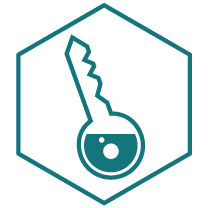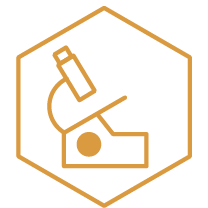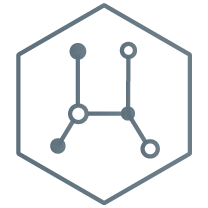Project Description:
Biomaterials for tissue engineering are designed to promote the formation of functional tissues to replace lost or damaged tissues. Despite significant progress in biomaterials design and synthesis, the resulting engineered tissues are functionally inferior to native tissues. This is largely because of the inability to recapitulate the dynamic and complex nature of the extracellular matrix (ECM) that surrounds cells in tissues. ECM composition varies depending on the specific tissue and is remodeled and reorganized over time during homeostasis and in response to major events, such as injury or disease. Specifically, glycosaminoglycans (GAGs) are important ECM biomolecules that exist in varying compositions indifferent tissues. The GAG chemistry and concentration is modified at different times by cellGmediated processes to regulate cellGcell and cellGECM interactions. The overall goal of the proposed BDSI project is to develop supramolecular GAGGbased hydrogels with tunable properties to influence cell behavior. The fundamental hypothesis of the proposed research is that modifying hydrogel composition will significantly affect both materials properties and cell behavior.
The proposed research plan for the BDSI summer program focuses on developing strategies to tune GAGGbased hydrogel properties and investigate human mesenchymal stem cells (hMSCs) response. This project is an expansion of previous results and ongoing work where we have successfully synthesized GAGGpeptide molecules that selfGassemble into hydrogels. The plan includes synthesis of selfGassembling GAGGpeptide molecules, materials characterization of GAGGpeptide hydrogels, and in vitro experiments with hMSCs encapsulated within the hydrogels. The data resulting from this work will beused to inform future hydrogel formulations and provide key preliminary results necessary for competitive external funding opportunities.
This interdisciplinary project involves a combination of chemistry, materials science and engineering, bioengineering, and cell biology. Two GAG molecules, hyaluronic acid (HA) and chondroitin sulfate (CS), will be modified with wellGestablished βGsheetGforming peptides to create GAGGpeptide hybrid molecules that crossGlink into a supramolecular hydrogel. The degree of peptide conjugation will be varied to create hydrogels with a range of mechanical properties. Notably, the modular design of these GAGGpeptide molecules allows coGassembly at desired ratios to create multiGGAG hydrogels. This also allows us to form hydrogels with matching mechanical properties but different biochemical compositions to decouple how mechanical and biochemical cues influence hMSC behaviour. In addition, the nonGcovalent crosslinking introduces selfGhealing properties that enable the recovery of mechanical porperties after large strains for injectable, minimally invasive delivery important for clinical translation.
Materials characterization techniques will be used to verify GAGGpeptide synthesis steps and assess hydrogel formation, mechanical properties, βGsheet formation, and selfGhealing capacity. A subset of the hydrogel groups for in# vitro studies will be selected based on matching mechanical properties or biochemical compositions. Human MSCs will be encapsulated within the hydrogels, and a wide range of biological techniques will be used to observe cell behavior in response to the different properties. For the 2017 BDSI Summer Program, we have identified the following key aims:
Aim)1: Synthesize and characterize singleGGAG hydrogels
Aim)2: Synthesize and characterize multiGGAG hydrogels
Aim)3: Investigate the effect of hydrogel properties hMSC behavior
During the course of this summer project, BDSI students will gain a wide range of different interdisciplinary skills including: synthesizing and characterizing hydrogelsU culturing, monitoring, and analyzing cellsU designing experimentsU adapting and optimizing protocolsU and improving written and oral communication. Students will also learn how to search and critically review scientific literature related to this project and biomaterials as a whole.





